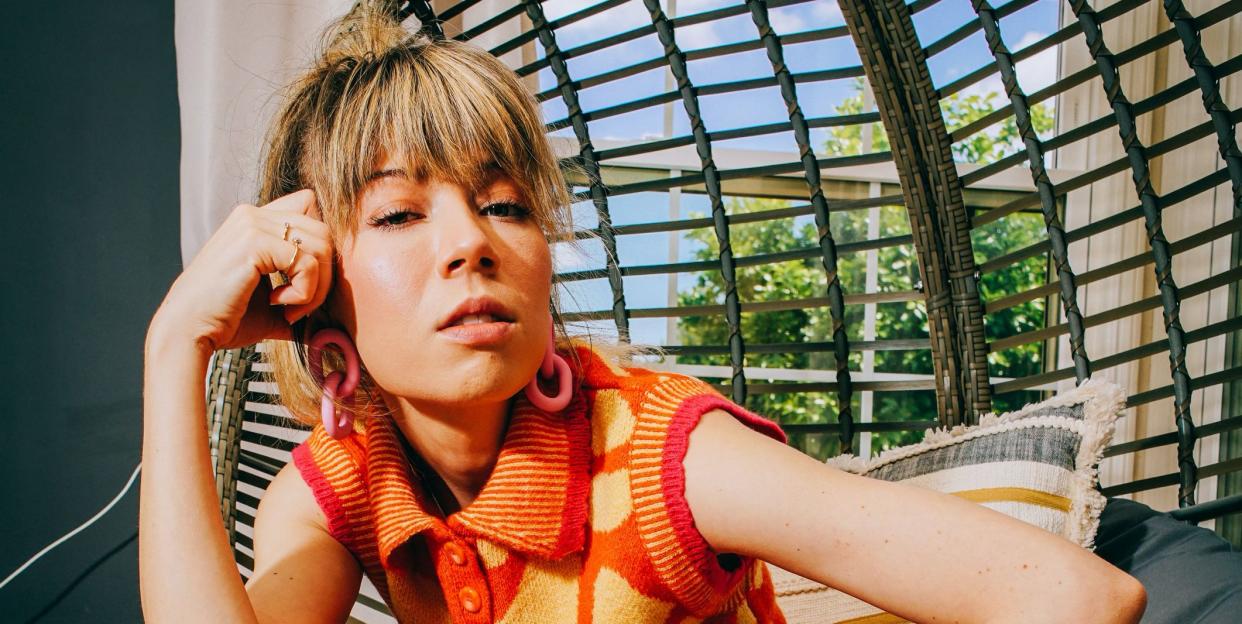Jennette McCurdy and the Pain of Complicated Moms

Jennette McCurdy’s debut memoir, I’m Glad My Mom Died—in which she speaks about the abuse she suffered from her mother including sexually, physically, and emotionally—has ushered the former Nickelodeon child star of iCarly fame into the storied pantheon of depictions about mother-daughter relationships from the perspective of a woman who hates her mother.
It’s not an easy place to be. Even though the subject of mother-daughter relationships has gotten a lot of attention in recent critical and commercial hits like Lady Bird and Everything Everywhere All at Once, those representations struck a chord with women who might use the nebulous yet succinct “complicated” to describe their relationships with their mothers. For others, their feelings towards their maternal figures lean toward an outright, fiery rage. McCurdy's book is for them.
You can see the divide in the reactions to the title of McCurdy’s book. When it was first released, it was met with confusion, disgust, and sometimes anger at the provocation. “I get that [the title] is attention grabbing,” McCurdy told Good Morning America. “But it's also something I mean sincerely.” For every commenter criticizing McCurdy for saying the one thing you “shouldn't” say about your mother, victims of maternal abuse have rallied around McCurdy’s willingness to be so candid about her life. Clearly, McCurdy’s book resonates: I’m Glad My Mom Died is now a New York Times best seller.
“I was surprised that someone who was willing to speak candidly about their abusive relationship with their mother was so well received,” a 23-year-old college student who asked to remain anonymous tells me. They were one of many people who reached out to me about their own experiences with being abused by their mother who was also pleasantly surprised by the warm reception they saw McCurdy receive.
Eighteen-year-old Jen, however, saw a different reaction to McCurdy sharing her story. “It’s saddening, but unsurprising, how many people are entirely dismissive of her experience just because her abuser was her mother,” she says.
Much like McCurdy’s mother who, according to the actress, controlled McCurdy’s diet so much that it triggered an eating disorder, Jen says that her own mother made derogatory comments about her body. “This led me to engage in self-harm after every argument,” Jen says. “In a way, it was a form of punishment for myself for not pleasing my mother.”
Motherhood has traditionally been depicted as inherently tender and loving. Anything that contradicts that ideal often leads to dismissal of victims of maternal abuse. “No one in our family believed us,” 30-year-old Aretha says about her experience coming forward about maternal abuse. “The few adults who did believe us still told me things like, ‘Okay, take care of her when she gets old. It’s the right thing to do.’”
“It is an endless onslaught of, ‘But that’s your mother,’ ‘So she made you eat your vegetables, that can’t be that bad,’ ‘Parents make mistakes,' and ‘You have to forgive her, that’s your family,’" 26-year-old Ann says. “I eventually gave up on trying to explain my pain to others, because I knew they would not understand the full capacity of my mother's long reign of abuse over me.”
“We’re expected to sacrifice our emotional, mental, spiritual well-being because someone birthed us and nothing more,” a young woman from North Carolina tells me.
Though a lot of the people I speak to can relate to McCurdy’s story, not everyone relates to McCurdy’s feelings of elation about her mother’s passing. “My mom had a health scare a few months ago, and I thought she might die, so after nine years of silence, I called her,” Ann says. “I wished she would die. We got to speak one last time, and she said she was proud of me, and she loved me, which I was not anticipating in the slightest. That was our closure; that was all we needed to say to each other.”
When your abuser is your mother, the path to healing is long and complicated. “I can't forgive her when I think of the little girl I was who was trusting and reliant on her mother,” Jen says. “It makes me sad to look at childhood photos and remember certain memories behind them of how my innocence and spirit was crushed. I can't forgive, because I can't understand how she could hurt her child and how much pleasure she took in it. I have to spend the rest of my life yearning for a mother I never had and trying to heal from the wounds left by the mother I did have. I would rather focus on healing as best I can and building a happy life instead of burdening myself by trying to forgive someone that doesn't feel remorse.”
You Might Also Like
